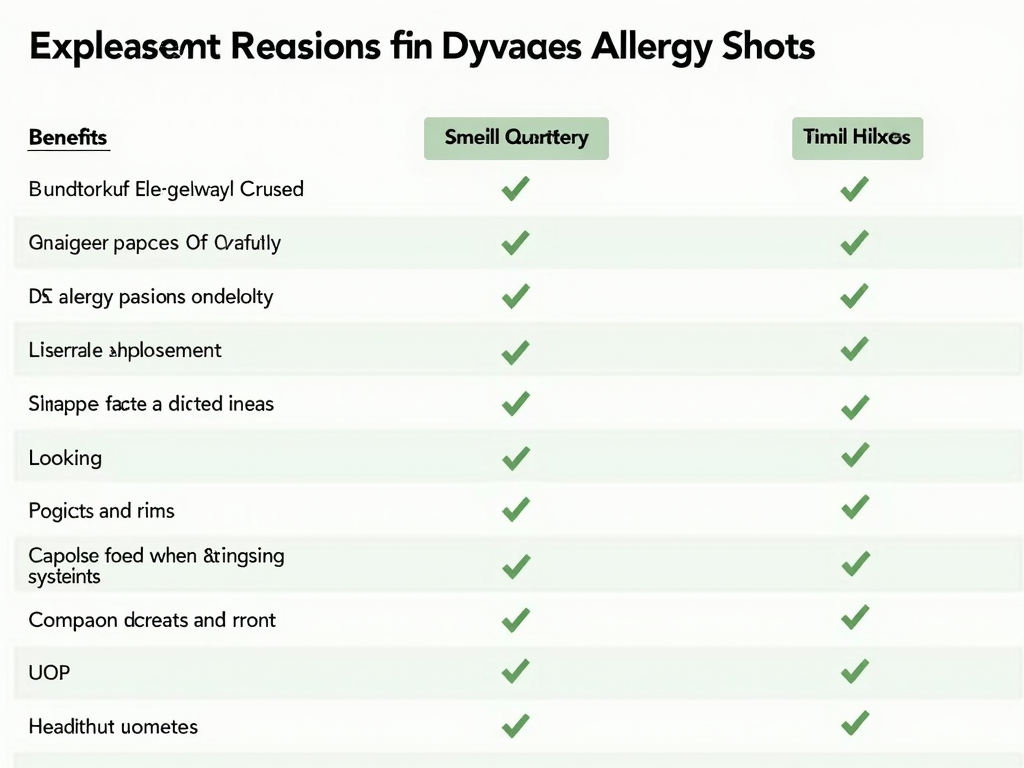Allergy shots, also known as allergen immunotherapy, are a long-term treatment designed to reduce the symptoms of allergies. This article explores the journey of undergoing allergy shots, particularly for those with pet allergies and chronic food allergies like FPIES. We'll cover what to expect during the treatment process, the benefits, and potential side effects.

Understanding Allergen Immunotherapy
Allergen immunotherapy involves gradually exposing your body to increasing amounts of allergens to build tolerance. This process can be particularly beneficial for those with pet allergies, as it can reduce reactions to pet dander. For chronic food allergies like FPIES, immunotherapy is still being researched, but some patients have found it helpful under medical supervision.
The treatment typically consists of two phases: the build-up phase and the maintenance phase. During the build-up phase, you'll receive injections once or twice a week, with the dose gradually increasing each time. This phase can last several months. Once you reach the maintenance dose, injections are spaced out to every few weeks.

What to Expect During Treatment
Each allergy shot is administered in a medical office, and you'll be monitored for a short period afterward to ensure there are no severe reactions. Common side effects include mild redness or swelling at the injection site. In rare cases, more serious reactions can occur, so it's important to follow your healthcare provider's instructions.
For those with pet allergies, the journey of allergy shots can be life-changing. Imagine being able to cuddle with your furry friend without sneezing or itching. One pet owner, Sarah, shared her experience: "After years of struggling with severe allergies, I decided to try allergy shots. It was a commitment, but now I can enjoy my time with my dog without any symptoms. It’s been a game-changer."

Benefits and Considerations
The benefits of allergy shots extend beyond just symptom relief. They can also prevent the development of new allergies and reduce the risk of asthma in children with allergic rhinitis. However, it's important to consider the time commitment and potential side effects. Discussing your options with a healthcare provider can help you make an informed decision.
For chronic food allergies like FPIES, allergen immunotherapy is still an emerging field. While it's not yet a standard treatment, ongoing research shows promise. If you're considering this option, consult with an allergist who specializes in food allergies to determine if it's right for you.

Preparing for Your Allergy Shot Appointment
To make the most of your allergy shot journey, here are some tips:
- Stay Consistent: Attend all scheduled appointments to ensure the treatment is effective.
- Communicate: Inform your healthcare provider of any reactions or concerns.
- Be Patient: It can take several months to see significant improvement, but the long-term benefits are worth it.
In summary, allergy shots can be a transformative treatment for those with pet allergies and are being explored for chronic food allergies like FPIES. By understanding what to expect and committing to the process, you can take control of your allergies and improve your quality of life.
Discuss Here